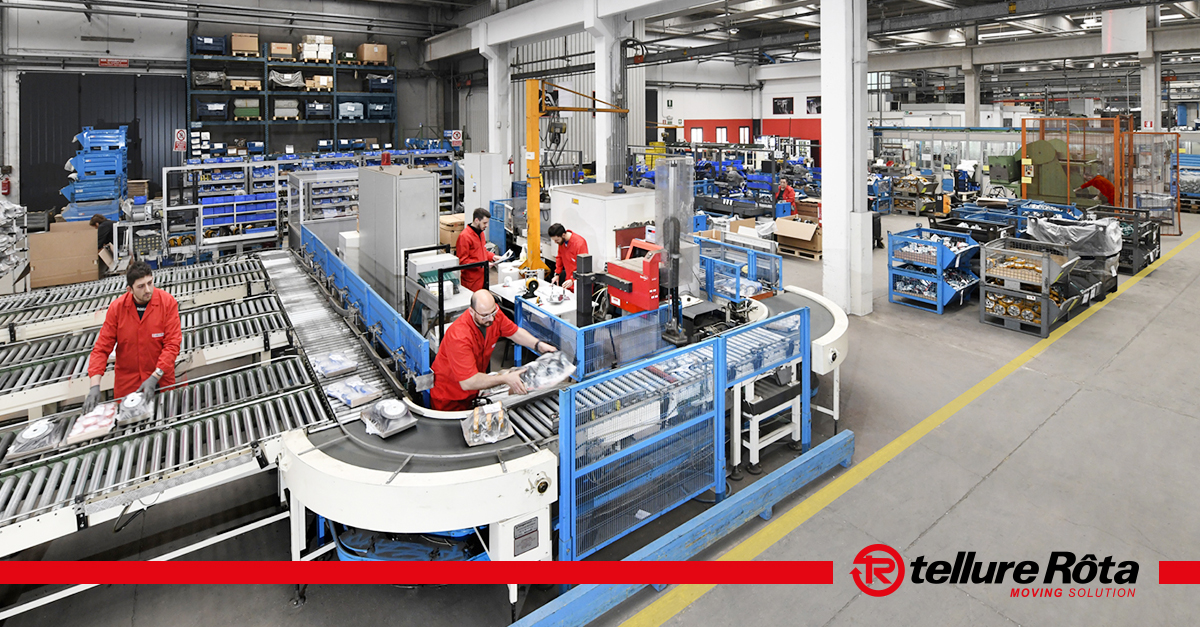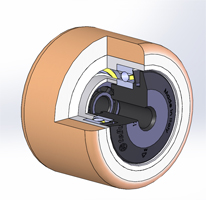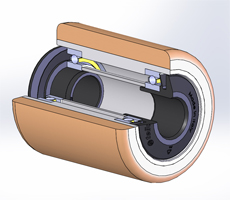20
Nov
Choice of correct industrial wheels to prevent accidents at the workplace
Contents
Most suitable industrial wheels in relation to the actual use
-
Size and nature of the load to be transported
-
Type of handling
-
Characteristics of the route to be covered
-
Flooring
-
Environment
Possible cases of accidents at the workplace
Choice of a reliable industrial wheel supplier with reference to the aspects of safety at the workplace
The role played by industrial wheels in the contest of safety at the workplace is still considered too superficially by companies.
But wheels, rollers and castors are very important for prevention of accidents at the workplace, and it is necessary to pay due attention to their proper use on trolleys, pallet trucks and scaffoldings.
Most suitable industrial wheels in relation to the actual use
The first aspect to focus on is the choice of the right wheels and castors in order to optimise the task to be performed, but also for more effective prevention of accidents at the workplace.
In order to choose the wheel-castor assembly most suitable for the specific company needs, several elements must be considered:
Therefore, it is necessary to choose wheels that do not deteriorate under the applied load.
In this regard, we remind you that the loading capacity for one wheel is calculated by considering the load weight it will have to transport plus the tare of the trolley itself.
The following pieces of information are important to calculate the loading capacity:
For a 4-wheel trolley:
Capacity = (solid load weight + trolley tare weight)/3
Capacity = (liquid load weight + trolley tare weight)/2
Dividing by 2 or 3, even in case of a 4-wheel trolley depends on the fact that not all 4 wheels are always in contact with the floor.
If handling is mainly manual, it is necessary to choose industrial wheels with excellent rolling resistance features, which can reduce the user effort. If handling includes towing, it is advisable to choose products with great resistance to impacts and that can be suitable for handling at high speed (>4 km/h);
A mainly straight route or a route with many changes of direction involve configuration choices with different castors;
A dirt or uneven flooring, or with many obstacles along the route, involves the use of wheels with elastic tread, whereas a smooth and regular flooring can be associated with the use of wheels with harder tread, which normally have better performance in terms of load capacity;
In the presence of humidity and aggressive chemicals, it is essential to choose products manufactured with resistant materials (usually, plastic wheels with stainless steel castors). Likewise, it is important to check that the materials and components of wheel and castor are resistant to the operating temperatures (especially in cases where the trolley is used in cooking, freezing, washing or sterilisation processes).
The use of the right wheel for a specific application allows an easy handling of trolleys and machinery with reduced effort; similarly, the use of an incorrect or deteriorated product can cause significant handling difficulties, up to machine downtime, interruptions of production lines and accidents at the workplace.
Possible cases of accidents at the workplace
Different types of accidents at the workplace may occur as a result of malfunctions, unsuitability or poor maintenance of industrial wheels, rollers or castors. Some examples are given below:
Wheel breakage
The breakage of a wheel - due, for example, to overload - can lead to trolley overturning, with consequent possible deterioration of the transported goods, but also - with far more serious consequence - to overturn on an operator, putting his/her safety at risk. Similar consequences may occur due to the inadequacy of rollers for pallet trucks or wheels of scaffoldings.
Castor or wheel unsuitability for an application
The use of a castor not suitable for the route on which the trolley is used may cause the overtiring of the operator pushing or pulling the trolley. For example, the use of a fixed castor instead of swivel castors in situations with frequent changes of direction leads the operator to make excessive efforts. The same occurs when the wheel has not been chosen with sufficient care (e.g. use of hard tread wheels on uneven flooring or with obstacles).
Unsuitability of the materials that make up wheels and castors
The use of products made with materials not suitable for a specific context may result in the occurrence of accidents. It is necessary to pay even greater attention in case of use of electrically insulating products in potentially explosive environments.
In case of trolleys with frequent manual handling, it is necessary to check that the operator in charge of handling them does not make an excessive effort during the workday. Considerable and prolonged efforts, in fact, can lead to the occurrence of occupational diseases.
Even in case of trolleys with mechanical handling, or self-propelled trolleys, it is essential that wheels and castors are made of materials suitable for their use. Otherwise, there is the risk of quick deterioration of the wheel or castor, resulting in unbalanced loads.
Choice of a reliable industrial wheel supplier with regard to the aspects of safety at the workplace
For all the aspects listed above, it is important to rely on a trustworthy supplier able not only to ensure the resistance characteristics for the specific use of the single products, but which also provides preventive advice for the choice of wheels and castors most suitable for your use, with specific attention to aspects relating to safety at the workplace.
In this regard Iberruedas, a leading company in this field, has been actively engaged in the last few years in spreading the culture of ergonomics for its industrial wheels and castors, providing a set of specific activities on safety, such as:
- inclusion in the technical documentation provided, as well as in the website www.tellurerota.com, of indicative user effort data based on the load applied to the different types of wheels;
- organisation of training courses for sales force, and participation in workshops and seminars on ergonomics;
- organisation of tests and trials on smoothness of the different types of wheels and on ergonomics of trolleys in the internal laboratory TRLab - Test&Research, accredited by the Emilia-Romagna Region;
- joint visits of its sales and technical managers to the facilities of the user companies, to check the conditions of use of trolleys and show on the field the difference in the efforts between the wheels used and the solutions offered by Iberruedas;
- active role played by Iberruedas in the lean approach training schools, focusing on continuous improvement in order to create value for its customers by increasing competitiveness, optimising business processes and reducing waste;
Do you want to find out more about the ranges of industrial wheels most suited to your needs, with a dedicated advice to analyse, among other aspects, safety at the workplace in relation to wheels and castors? Contact our experts to receive a targeted response.




